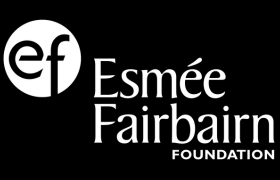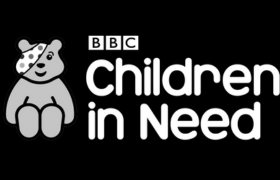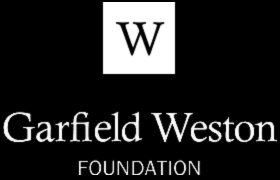IN CONVERSATION WITH CHRISTOPHER HYDE
SCRIPTWRITER OF INDIE FAVOURITE “I AM NOT A SERIAL KILLER”
Signal Cinema hosted a special screening at the Vue Cinema Barrow on Thursday 15th December at 7:30pm, for the Cumbrian premiere of indie favourite I AM NOT A SERIAL KILLER (15). There was a special appearance by its Barrow-born scriptwriter Christopher Hyde.
Signal Film & Media Co-Director Kerry Kolbe was able to interview scriptwriter Christopher Hyde during his busy schedule:
KK: Hi Chris, thank you for agreeing to this interview. Could you tell us where you’re from and how you got into writing?
CH: I was born in Barrow, and lived there most of my life. My dad works in the oil industry so we moved to Saudi Arabia when I was two or three and lived there for three or four years, but then moved back to Barrow. I went to Chetwynde and then Barrow Sixth Form College and then the University of Abertay in Dundee, doing a computer arts degree as sort of a fall back in case writing didn’t work out. While I was there I realised that I liked writing more than computer art – but luckily the course included any kind of creativity as long as it was using a computer. Most people did web design, animation and filmmaking but I met a lecturer in my last year who sort of championed me. He argued to the university that writing was creativity using a computer so I got to write for a lot of the time I was there, and in the fourth year when I made a short film it all cemented that I really wanted to write. I graduated in 2003 and got an agent in 2005 and worked since then.
KK: Did you feel like coming from Barrow had any specific effect on how you felt about writing?
CH: I suppose after I left university I moved back home with my Mom and Dad and in one regard Barrow was great because it’s a nice place to live as you can get on with what you’re doing – so I found the space to really spend time doing the writing. I sometimes wonder what would have happened if I had moved away at an earlier age – but then I think if I had, I wonder if I would have got a regular “job” and maybe not worked as hard. All through my twenties, all I really did was write and I got out all of the crap that you have to get out of your system to get better at it. Some people get lucky and can write amazingly straight away, but that wasn’t me. I must have written hundreds of scripts, all of which are terrible, but I had to do that to hone the craft, you know. In one sort of abstract way Barrow is fantastic for that, since there weren’t distractions of big city life and I saved money obviously.
KK: I guess you could live cheaply since your Mum and Dad let you stay at home?
CH: Right, it was good for that. It is kind of an inspiring town in terms of what’s there, there’s a lot of history. There’s the Lake District and Furness Abbey and all these places, so there’s plenty of inspiration, even if it’s more just a kind of spiritual thing that you have a lot of walks in the countryside and let the ideas churn in the back of your head. I find it hard to do that in London now, it’s so intense. It’s kind of a nurturing town in that regard, it’s peaceful and you can get on with what you want to do.
KK: So you didn’t feel it was a limitation being on the outskirts – in a place where there’s not a load of other writers and you’re not in the midst of a city hub?
CH: No, I never felt that I needed that, I had, like I said, an agent pretty early on, and I had a few contacts who would read my stuff, but writing is so sort of solitary anyway. Other people would definitely gain benefits from those sort of writing groups but I never felt like it was something I wanted to do, maybe It would have been better but I don’t know.
KK: Do you find writing needs a certain pre-disposition in order to be quiet and on your own all that time?
CH: I think even as a kid I snuck away into my own headspace. I loved film and TV from an early age, you could just disappear into another world. I kind of trained myself to be in that headspace – I still had a normal life in terms of friends and everything else going on but I never had a problem being by myself. So if I suddenly decided I had a great idea and wanted to spend a few weeks writing it, that was more important than any sort of social side. Even if you have the best idea in the world, if you don’t have the discipline or the willingness to sit down and do it then it’s no use. Like I said, most of the stuff I wrote early on was crap. But at the time you don’t think it’s crap, it’s the greatest thing you’ve ever written in your life and everyone’s going to love it. It’s funny when I read stuff back now, it’s the funniest stuff ever. I always wrote beyond my means in terms of, I didn’t write stories about a guy in a small town. I wrote about alien invasions and terrorists and action films, you know, crazy stuff. I think it’s a way of getting out of real life.
KK: So how did you learn to edit your writing and find out what worked?
CH: I would get given a lot of books on scriptwriting – “So you want to be a screenwriter,” those kind of books. I didn’t really like them from an early age, even though who was I to say they were wrong? But there was something about the technicality of it all that rubbed me the wrong way. I suppose what I’m trying to say is that I learned that for myself rather than reading it in a book, which I think was the better way to do it. I think it felt like I wanted to do a creative thing and someone telling me about structure and stuff I was like “NO!” But what I was doing was learning that anyway, I just didn’t realise it at the time.
Maybe I did it the wrong way but it felt like the right way at the time. I still think all that is just a guideline, you should always do what you feel is right. There’s golden rules like three-act structure but I feel like we’re all innately given that from a young age, any story is always about, well one I heard was the first act is the first act you get a guy in the tree, the second act is you throw rocks at him and the third act is you get him down from the tree. Even from an early age, fairy tales and kids stories. they’re all those three beats of storytelling. I think we all have that in us anyway. If you get something from those books, then there’s no problem with that whatsoever. I guess it’s just do what works for you.
KK: Is this your first project to be filmed? You’ve worked on other feature film scripts as paid gigs but they may not have been made yet or didn’t happen for various reasons?
CH: Yeah, exactly, there’s things that have come and gone, have died or are still going on. This is really unfortunate but you can make a living selling stuff and never getting something made. This one (I am Not A Serial Killer) took ages as well. It’s a rare thing sadly, but you always strive for that, the end objective is to get something made.
KK: What can you tell us about the film that might get people to want to come and see it, what’s the appeal for the audience?
CH: Well it’s based on a very popular book by Dan Wells. It’s got that built in appeal anyway. The big thing about it is that it’s a different kind of film – it’s original for a start, it’s not a superhero remake or a reboot or that kind of thing, it’s a new story. It’s very brave in terms of what it’s about, it’s multi-genre it blends ideas and things that people are already familiar with but does it in a different way but at its heart is a very human love story. It’s got fantastical elements in, crazy things that could never happen to anyone or what people could relate to. But at the heart of it, the core, it is human things, it’s about a young boy, isolated, trying to find it place in the world and figure out who he is and what life is all about, and then at the same time it’s an age old love story between elderly couple. It all comes down to human drama, which is great.
KK: The teen protagonist has a conflicted identity, the story seems to touch on both the mental health issues as well as the attitudes & prejudices many adults have about teenagers. Do you feel that you’ve embraced those themes?
CH: Well in the story he’s clinically diagnosed as a sociopath, there are issues of that but we don’t get to bogged down in it. People talk about, “Well is he a sociopath or is he just a teenager?” so sometimes that’s just a grey area. John, the kid in the story, definitely has clinical issues, but, put on a spectrum, if he’s at a hundred percent then you can still relate to stuff in your own life that’s at ten percent. He’s isolated and he feels like he’s going to hurt someone one day, he relates more to destruction and killing and doesn’t have any empathy. But we all feel that in a weird way. Especially when you’re a rebellious teenager and finding your own place in the world. So there’s stuff people can relate to, and the cool thing is we all imagine what it would happen if we went that little bit further and John explores that for you without having to do it yourself.
KK: Have your friends and family seen it in Barrow? Have they had a chance to see it in the cinema?
CH: We watched a screening the last time I was in Barrow which was August, and they all loved it! My younger brother hasn’t seen it and I’ve got a brother who lives in Canada and I don’t think he’s seen it either but they’re really looking forward to it, so it would be a nice event. It’s a good film, you should see it!
KK: Thank you for your time Chris – we’re looking forward to it!
The New York Times review considers it “..a well-filmed indie that doesn’t let it’s low-budget get in the way of some true chills..”
Tickets cost £5 in advance/concessions or £7.50 on the night for this special presentation & can be purchased at Signal’s offices at Cooke’s Studio’s on Abbey Road.








